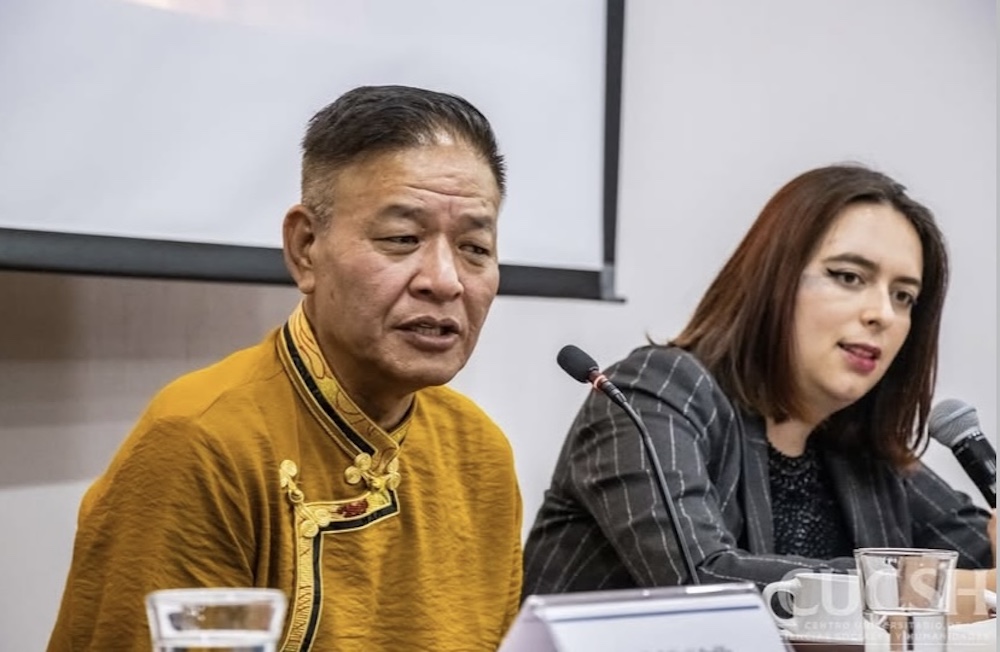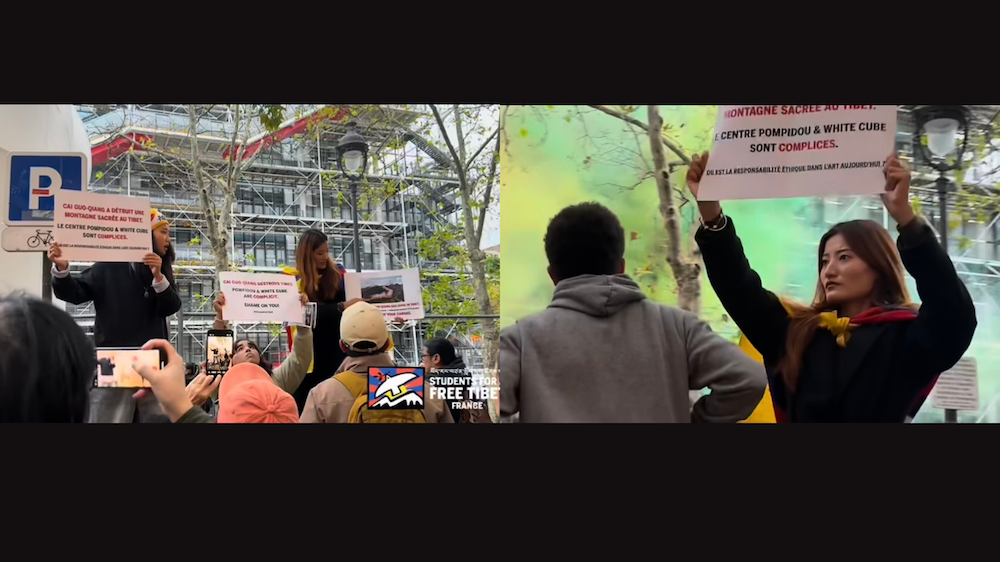Switzerland Appeals for an Immediate End to Executions by China
Geneva, April 22 – As the 59th session of the UN Commission on Human Rights ended its fifth week of work on 17 April, Switzerland while announcing its candidature for the membership of this UN human rights body for the period 2007-2009, appealed to China, Iran and United States of America to immediately suspend the practice of executions.
During the fifth week of work, two NGO written statements on Tibet by Society for Threatened Peoples and Transnational Radical Party were distributed to the Commission when it discussed the items dealing with human rights of women and human rights defenders.
The statement by Society for Threatened Peoples informs the Commission about the struggle of human rights defenders in Tibet saying: The cultural assimilation of Tibetans has resulted in the denial of the full spectrum of human rights. Any expression of dissent is immediately punished by arrest and, in virtually every case, torture. “Dissent” in Tibet extends to any effort of Tibetans to preserve their culture and their identity as a people with a history, language, culture, religion and political and economic systems distinct from that of the Chinese people. Therefore any act of political dissent by a Tibetan, in the face of the virtual certainty of arrest and torture, is an act of a human rights defender. Tibetan dissidents protest as a form of sacrifice and resistance on behalf of an entire people denied their fundamental rights, including their right to self-determination.
The statement by Italy-based Transnational Radical Party highlights violence against Tibetan women perpetrated by the Chinese authorities, especially on female political prisoners. It calls the Commission’s attention ?to the pattern of gender-based violence that Tibetan women suffer at the hands of the Chinese authorities. This pattern includes rape and other sexual torture perpetrated against Tibetan women, primarily nuns, as punishment for non-violent political protest. Moreover, these acts take place within the context of a broad and ongoing pattern of human rights violations against the Tibetan people, whose foundational right to self-determination has been denied for the past fifty years, as recognized by General Assembly Resolution 1723 (XVI) (1961) (and the 1965 resolution 2106A (xx), which reaffirms the 1961 one).
On 11 April, a press release of Amnesty International said that 1,060 executions took place in China in 2002 adding that the actual number was believed to be much higher. The death penalty is the ultimate cruel, inhuman and degrading punishment and a violation of the right to life, the press release said. It is time to get rid of this barbaric punishment forever, the release added.
On the question of the death penalty, the UN Secretary-General reports to the Commission that the trend towards abolition continues, with an increase in the figure of completely abolitionist countries from 76 to 77. The number of countries that are abolitionist for ordinary crimes has increased from 11 to 15. The overall number of retentionist countries remains at 71. There is also an increase in the number of countries which have ratified international instruments providing for the abolition of the death penalty.
In the report by the Secretary-General of the United Nations to the Commission on access to medication in the context of pandemics such as HIV/AIDS, the Chinese authorities provided information on its national strategy and plan of action to prevent and control the spread of HIV/AIDS for 2001-2005, which is being implemented at provincial, regional, municipal and local levels. Priorities include measures for the prevention and treatment of HIV/AIDS, awareness-raising and educational activities, and initiatives to tackle root causes.
According to the information provided to the United Nations, China?s plan of action sets out a number of measures to achieve specific goals and targets such as ensuring the safety of blood transfusions, stepping up health education, addressing high-risk behaviour, improving health-care services for people living with HIV/AIDS, establishing effective monitoring systems, increasing training in the prevention and control of HIV/AIDS and sexually transmitted diseases, and conducting AIDS related research.
On 15 April, when the Commission discussed the item dealing with the subject of human rights defenders around the world, Ms. Hina Jalani (Pakistan), the Special Representative of the UN Secretary-General on Human Rights Defenders presented her report. She told the Commission that her report reflects continuing concerns for the situation of defenders striving for the rights of the socially or politically marginalized, such as minorities, indigenous peoples and rural populations. Conditions resulting from the political climate in many countries threaten the work of pro-democracy activists and defenders of the right to self-determination.
While reports of thematic special procedures of the Commission continued to be released at the 59th session, Ms. Anne-Marie Lizin (Belgium), the independent expert on the relationship between extreme poverty and human rights, in her report says that China’s experience merits special study, taking into account the country’s economic prospects, in order to identify the ingredients of success. It would, for example, be interesting to determine whether public policies are diminishing rather than reinforcing ethnic distinctions between Chinese.
In the report of Ms. Fatma-Zohra Ouhachi-Vesley (Algeria), Special Rapporteur on adverse effects of the illicit movement and dumping of toxic and dangerous products and wastes on the enjoyment of human rights, informs the Commission about allegations received from Basel Action Network that substantial amounts of hazardous electronic wastes are exported from United States and Canada to Asian countries such as China for recycling. The Basel Action Network alleges that improper disposal of electronic waste that contains heavy metals and pollutants poses a significant threat to human health, leading to respiratory illness, skin infections, stomach diseases and other conditions. The report submits that such exports of electronic waste are contrary to the Basel Convention to which Canada is a party but not the United States.
The Special Rapporteur says that her request for comments by the Governments of China and United States on the allegations made by Basel Action Network remains unanswered. Canada, on the other hand informed the Special Rapporteur that Ottawa prohibits the exports of hazardous wastes to countries that have notified Environment Canada that they themselves prohibit imports of such waste. As of November 2002, China had not notified Environment Canada of any ban on the import of electronic waste. In view of the allegations of electronic waste export to China, Environment Canada has requested information from the Chinese authorities as to whether China has a prohibition of the import of electronic scrap.
Human Rights Advocates, a NGO in consultative status with the United Nations, in a written statement to the Commission which raises the issue of import of electronic waste in China, recommends continued investigation by the Special Rapporteur into particularly troubling areas and the conditions that workers are exposed to due to economic pressures to provide jobs, despite a lack of training and safety equipment or standards. The NGO also recommends the Special Rapporteur to visit China for the above purpose.
By the time of the 59th session, the Commission on Human Rights had established 29 thematic special procedures and 8 country special rapporteurs.
For more information on the 59th UN Commission on Human Rights, please visit www.unhchr.ch









